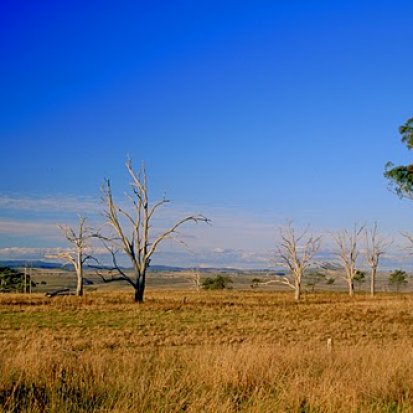
At the Department of Agriculture and Water Resources Public Seminar Series, Dr Neville Crossman (CSIRO) presented a strong case for better acknowledgement and integration of natural capital* in the way in which we measure human impact on natural resources. Dr Crossman convincingly demonstrated that natural capital provides tremendous monetary value to human societies, and that there are significant risks associated with the failure to acknowledge or measure this. Drawing on the work of his own team at the CSIRO, he further emphasised the importance of integrative and multi-disciplinary teams in developing a holistic understanding of natural capital and ecosystem services. This approach, he argued, is important in developing a comprehensive understanding of the problem and its drivers.
A challenge with research and knowledge generation is transitioning those outputs into practical outcomes. Unfortunately, the seminar did not go into detail regarding how the concept of natural capital, and knowledge around it, could be applied in practice or how this research could make its way into the policy space. While there was mentioned of a number of Science-Policy Initiatives (initiatives aiming to connect research with policy development and implementation), it focused largely at the international level and frameworks which served to standardise international measurements of Natural Capital (e.g. the UN ‘System of Environmental-Economic Accounting’) or global partnerships (e.g. World Bank ‘Wealth Accounting and the Evaluation of Ecosystem Services’) to demonstrate the importance of natural capital.
The presentation of potential levers for reducing the degradation of natural capital and ecosystems was constrained to market mechanisms. Specifically, Dr Crossman’s response to a question from the audience regarding different policy levers was that, from a solutions and policy perspective, no levers outside of market mechanisms and pricing had been considered. This is problematic as it constrains the tools available to policy makers. For example, the excluded tools include not only regulation but other softer approaches such as education and outreach, strategically focused research, and voluntary codes. The understanding that a suite of strategies is required is not a new one and it makes sense – no tool (or policy lever) is going to work in all circumstances. For the issue of natural capital and ecosystems this is important, as the degrading practices are embedded within the way our society interacts with the environment. Solutions to our degrading relationship with the environment will ultimately need to influence the way in which society interacts with its natural resource base.
While there will always be the desire and need for more knowledge and quantification of impact, this should not distract from developing strategies to address the problem, such as for climate change, dry-land salinity, food security, drought and many more. We know there is a problem, yet having incomplete knowledge should not preclude governments and societal groups from doing something about it. We need to go beyond ‘clever modeling’ that underpins current research on natural capital and think strategically about how to link these understandings with other policy avenues. The same integrative team approach, which draws on the different types of knowledge and experience that exists across government, academic and industry, needs to now be applied in a policy relevant context to make that knowledge based relevant in the consciences of policy makers.
Contributing to a targeted and effective research agenda in the agricultural space is a direct area of interest for Sustineo. We are working with the Australian Centre for International Agricultural Research to develop a new qualitative Impact Assessment methodology to evaluate the long-term impact of targeted research projects. It has been applied to ACIAR’s investments to reduce aflatoxin contamination in peanuts in Indonesia and Australia. The methodology allowed an investigation of how the knowledge generated led to sustained policy change. The methodology is expected to be publically available in early 2016.
*Natural capital is a broadly understood term – in the presentation Dr Crossman defined it as “the world's stock of natural resources which creates a long term supply of goods or services”